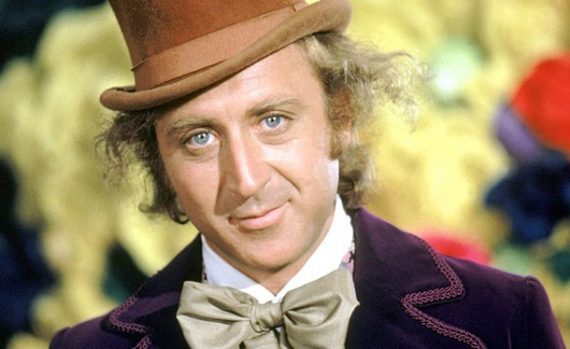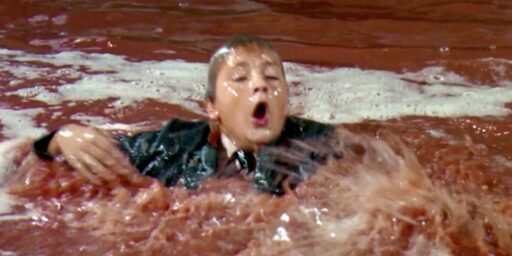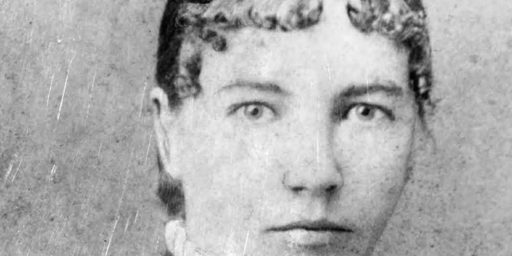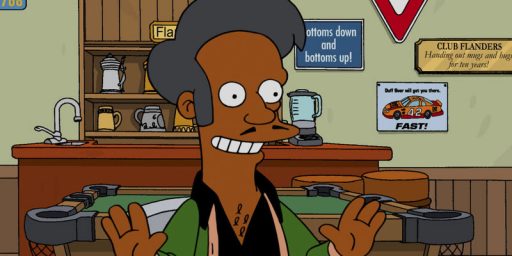Gene Wilder, Comedian And Film Actor, Dies At 83
A skilled comedian and unlikely leading man has passed away at the age of 83.
Gene Wilder, whose career includes memorable roles in ‘Willy Wonka And The Chocolate Factory,’ ‘Stir Crazy,’ and ‘Young Frankenstein’ among other comedic film classics, has died at the age of 83:
Gene Wilder, an actor whose work with Mel Brooks and Richard Pryor made him one of the most popular stars of the 1970s and whose memorable portrayals of neurotics and eccentrics included the hilariously mad scientist in “Young Frankenstein,” died Aug. 28 in Stamford, Conn. He was 83.
A nephew confirmed his death to the Associated Press and said the cause was complications from Alzheimer’s disease. He had been diagnosed with non-Hodgkin’s lymphoma nearly two decades ago.
Mr. Wilder grew up in the Midwest, trained at the Old Vic in England and brought classical stage technique to Brooks’s outlandish humor. “My job was to make him more subtle,” Mr. Wilder once said. “His job was to make me more broad.”
But sometimes Mr. Wilder brought important comic ideas to Brooks. While filming “Young Frankenstein” (1974), a tribute to Universal Studios horror movies of the 1930s, Mr. Wilder urged that he and Peter Boyle, who was playing the monster, tap-dance a duet to “Puttin’ on the Ritz.”
Brooks objected to the musical number, until a test audience reacted with howls of laughter.
In another era, Mr. Wilder’s Harpo Marx-like mop of golden hair, his slight physique and his soft, almost lisping voice might have hindered a career as a leading man. But Brooks once said he found Mr. Wilder “a natural . . . an Everyman with all the vulnerability showing. One day God said, ‘Let there be prey,’ and he created pigeons, rabbits, lambs and Gene Wilder.”
Brooks channeled the actor’s wide-ranging comic talents intomany types of roles. For the theatrical farce “The Producers” (1968), Wilder played an ultra-nervous accountant who becomes hysterical when his baby-blue security blanket is taken away. It was a portrayal film critic Pauline Kael called “almost a shtick of genius.”
In the western spoof “Blazing Saddles” (1974), Mr. Wilder played the other extreme as the Waco Kid, an alcoholic gunman whose draw is so quick that he disarms eight attackers in one scene without the camera detecting any expression or movement on his part.
After an early Broadway career, Mr. Wilder debuted onscreen in a brief role as a kidnapped undertaker in “Bonnie and Clyde” (1967).
He soon teamed with Brooks, and Mr. Wilder’s comic skills tended to overshadow his work as a director, writer and championship fencer, all of which he displayed in “The Adventure of Sherlock Holmes’ Smarter Brother” (1975).
His other well-known portrayals included the candymaker who gleefully watches greedy children meet their just deserts in “Willy Wonka & the Chocolate Factory” (1971) and a doctor lovestruck with a sheep named Daisy in Woody Allen’s “Everything You Wanted to Know About Sex* But Were Afraid to Ask” (1972).
The second role was widely acknowledged as an exercise in brilliant deadpan comedy. Keeping in character, Mr. Wilder later joked that the part was made easier because of “very attractive things about this sheep, the little black hairs around each eye.”
With Pryor, Mr. Wilder made several buddy comedies that broke ground in their interracial teaming, including “Silver Streak” (1976) and “Stir Crazy” (1980). Mr. Wilder pushed for casting Pryor to deflect cries of racism in light of controversial material, such as the scene in “Silver Streak” in which Mr. Wilder applies shoe polish to his face and tries to “act black.”
In 2005, he told the London Independent that he and Pryor were never close socially, and he was not aware of the comedian’s drug use. “Until he set fire to himself, when he was freebasing,” he said. “Then I knew.”
Mr. Wilder’s career faded in the 1980s after making a series of undistinguished films, several co-starring his third wife, “Saturday Night Live” alumna Gilda Radner. After her death from ovarian cancer in 1989, Mr. Wilder co-wrote a book about ovarian cancer and started a cancer support network.
Jerome Silberman was born in Milwaukee on June 11, 1933. He later took his stage name from the playwright Thornton Wilder. His first name came from the main character of Thomas Wolfe’s novel “Look Homeward, Angel,” although Mr. Wilder later wrote in a memoir that his psychoanalyst suggested another reason: His mother’s name was Jeanne.
“Mel said to me, ‘I’ve got a great idea for a movie, and you’re the only one I want for this part,’ ” Mr. Wilder told the New York Times in 1967. “Three years went by, and I didn’t hear from him, not a message, not a phone call. Then I was in [the Broadway comedy] ‘Luv,’ and one matinee day I got a knock on my door, and he said, ‘You didn’t think I forgot, did you?’ ”
The film was “The Producers,” and the supporting role brought Mr. Wilder an Academy Award nomination. His only other Oscar nomination was for co-writing “Young Frankenstein.”
More from Variety:
Gene Wilder, who regularly stole the show in such comedic gems as “The Producers,” “Blazing Saddles,” “Young Frankenstein,” “Willy Wonka and the Chocolate Factory” and “Stir Crazy,” died Monday at his home in Stamford, Conn. His nephew Jordan Walker-Pearlman said he died of complications from Alzheimer’s disease. He was 83.
He had been diagnosed with non-Hodgkin’s lymphoma in 1989.
The comic actor, who was twice Oscar nominated, for his role in “The Producers” and for co-penning “Young Frankenstein” with Mel Brooks, usually portrayed a neurotic who veered between total hysteria and dewy-eyed tenderness. “My quiet exterior used to be a mask for hysteria,” he told Time magazine in 1970. “After seven years of analysis, it just became a habit.”
Habit or not, he got a great deal of mileage out of his persona in the 1970s for directors like Mel Brooks and Woody Allen, leading to a few less successful stints behind the camera, the best of which was “The Woman in Red,” co-starring then-wife Gilda Radner. Wilder was devastated by Radner’s death from ovarian cancer in 1989 and worked only intermittently after that. He tried his hand briefly at a sitcom in 1994, “Something Wilder,” and won an Emmy in 2003 for a guest role on “Will & Grace.”
His professional debut came in Off Broadway’s “Roots” in 1961, followed by a stint on Broadway in Graham Greene’s comedy “The Complaisant Lover,” which won him a Clarence Derwent Award as promising newcomer. His performance in the 1963 production of Brecht’s “Mother Courage” was seen by Mel Brooks, whose future wife, Anne Bancroft, was starring in the production; a friendship with Brooks would lead to some of Wilder’s most successful film work. For the time being, however, Wilder continued to work onstage, in “One Flew Over the Cuckoo’s Nest” in 1963 and “Dynamite Tonight” and “The White House” the following year. He then understudied Alan Arkin and Gabriel Dell in “Luv,” eventually taking over the role.
Wilder also worked in television in 1962’s “The Sound of Hunting,” “The Interrogators,” “Windfall” and in the 1966 TV production of “Death of a Salesman” with Lee J. Cobb. He later starred in TV movies including “Thursday’s Game” and the comedy-variety special “Annie and the Hoods,” both in 1974.
In 1967 Wilder essayed his first memorable bigscreen neurotic, Eugene Grizzard, a kidnapped undertaker in Arthur Penn’s classic “Bonnie and Clyde.”
Then came “The Producers,” in which he played the hysterical Leo Bloom, an accountant lured into a money bilking scheme by a theatrical producer played by Zero Mostel. Directed and written by Brooks, the film brought Wilder an Oscar nomination as best supporting actor. With that, his film career was born.
He next starred in a dual role with Donald Sutherland in “Start the Revolution Without Me,” in which he displayed his fencing abilities. It was followed by another middling comedy, “Quackser Fortune Has a Cousin in the Bronx,” also in 1970.
In 1971 he stepped into the shoes of Willie Wonka, one of his most beloved and gentle characters. Based on the children’s book by Roald Dahl, “Willie Wonka and the Chocolate Factory” was not an immediate hit but became a children’s favorite over the years. The same cannot be said for the 1974 Stanley Donen-directed musical version of “The Little Prince,” in which Wilder appeared as the fox. He had somewhat better luck in Woody Allen’s spoof “Everything You Wanted to Know About Sex,” appearing in a hilarious segment in which he played a doctor who falls in love with a sheep named Daisy.
Full-fledged film stardom came with two other Brooks comedies, both in 1974: Western spoof “Blazing Saddles” and a wacko adaptation of Mary Shelley’s famous book entitled “Young Frankenstein,” in which Wilder portrayed the mad scientist with his signature mixture of hysteria and sweetness.
Working with Brooks spurred Wilder to write and direct his own comedies, though none reached the heights of his collaborations with Brooks. The first of these was “The Adventure of Sherlock Holmes’ Younger Brother” (1975), in which he included such Brooks regulars as Madeline Kahn and Marty Feldman. It was followed by 1977’s “The World’s Greatest Lover,” which he also produced.
Wilder fared better, however, when he was working solely in front of the camera, particularly in a number of films in which he co-starred with Richard Pryor.
The first of these was 1978’s “Silver Streak,” a spoof of film thrillers set on trains; 1980’s “Stir Crazy” was an even bigger hit, grossing more than $100 million. Wilder and Pryor’s two other pairings, “See No Evil, Hear No Evil” and “Another You,” provided diminishing returns, however.
While filming “Hanky Panky” in 1982, Wilder met “Saturday Night Live” comedienne Radner. She became his third wife shortly thereafter. Wilder and Radner co-starred in his most successful directing stint, “The Woman in Red” in 1984, and then “Haunted Honeymoon.” But Radner grew ill with cancer, and he devoted himself to her care, working sporadically after that and hardly at all after her death in 1989.
In the early ’90s he appeared in his last film with Pryor and another comedy, “Funny About Love.” In addition to the failed TV series “Something Wilder” in 1994, he wrote and starred in the A&E mystery telepics “The Lady in Question” and “Murder in a Small Town” in 1999. He also appeared as the Mock Turtle in a 1999 NBC adaptation of “Alice in Wonderland.”
He last acted in a couple of episodes of “Will and Grace” in 2002-03 as Mr. Stein, winning an Emmy.
As noted, Wilder’s career kind of fizzled out in the late 80s,, and especially after Gilda Radner passed away and he seemed to retreat into working on various cancer-related charities rather than acting. However, when he was on-screen he was among the best, and we’ll always have those performances.
Here’s just a few.
From ‘Young Frankenstein’, his famous duet with the late Peter Boyle:
‘Blazing Saddles’:
;
‘Stir Crazy’:
And, of course, ‘Willy Wonka And The Chocolate Factory’:







RIP Mr. Wilder.
Hopefully you went without pain, without a sedagive.
Sigh….I remember watching him as Willy Wonka.
Rest in Peace, Mr. Wilder.
As I mentioned on the other thread…I’ll be watching Young Frankenstein this evening, and laughing my arse off.
RIP funny man…RIP
2016 is really sucking so far.
RIP Mr. Wilder.
What a dazzling talent. Rest in peace. Mr. Wilder. You brought the gift of laughter to uncounted millions. People will still be watching Young Frankenstein, Blazing Saddles, The Producers, Silver Streak, and everything else you did for generations to come.
What a legacy: to be part of the funniest movies ever made.
He’s with Gilda now.
I’ll always love ‘Young Frankenstein’, but I can’t believe ‘The Frisco Kid’, which he starred in alongside Harrison Ford, is not in the list. That one is my daughter’s favorite and we often find occasion to laugh over “Here, little chicken… I don’t want to hurt you, I just want to eat you…”
Rest in peace, Mr. Wilder, and laugh with Gilda in eternity.
@bookdragon: Great movie. Never seems to get the play or respect it deserves.
Gene Wilder was a special kind of man: he forgot himself. most of the time, to bring out the best in other actors he worked with. But best of all, his brilliant zany silly mind came up with the best ways to make every one laugh, giggle and enjoy life. What a gift. Thank you Mr. Wilder.
The thing I loved about Wilder was how well he played off of other actors. It was almost never the Gene Wilder Show. It was Gene and Zero Mostel in 1968’s brilliant “The Producers”. It was him and Cleavon Little in Blazing Saddles. It was him and Mary Feldman in Young Frankenstein. It was him and Richard Pryor. He could be the straight man, the funny man or both at the same time. Even his guest spots on Will and Grace were brilliant, again because of the way he played off of the other actors.
RIP.
That’s not accurate really. “Fizzled’ strongly implies he was trying to work but couldn’t get roles, that he had simply passed his prime. Steve Martin’s career has fizzled. Wilder was much more like Rick Moranis, a super talented person who voluntarily stopped working.
@bookdragon:
Ditto. Say what you will of his other work, but the Frisco kid is one of the best “fish out of water” stories ever.
Harrison Ford as a Cowboy / bank robber, Wilder as a Rabbi from Poland on his way to San Francisco.
Outstanding film. Outstanding actor. Outstanding person.
@David in KC: Agreed. No one good gets out of 2016 alive, apparently.
One of my favorite movie scenes of all time is in Blazing Saddles when Cleavon Little has just gone out to meet the townspeople as a their new sheriff. He runs into a little old lady, greets her warmly, and she replies “Back off n****r”. He returns to his office dejected and Gene Wilder gives him a great “Pep talk”
“What did you expect? Welcome, sonny? Make yourself at home? Marry my daughter? You’ve got to remember that these are just simple farmers. These are people of the land. The common clay of the new West. You know . . . morons”
@David in KC: No shit. I just got back from the third memorial service I’ve been to in the last month. I don’t know what it is about this year but it’s been awful.
A very unique and intelligent comic actor, where every one of his appearances became a critically acclaimed event. As excellent as his last performance was, he would always top that with a greater performance.
Apparently it will be an awful year for 55.3 million of us before it is all over.
https://www.quora.com/How-many-people-are-born-die-every-day-in-the-world-What-is-birth-to-death-ratio-in-the-world
@bookdragon: About 15 years ago my parents were buying a new house, and at the meeting finalizing the sale, the broker was an older Jewish man. As we sat down to begin the meeting, out of the blue he cited the scene from Frisco Kid where Wilder comes upon Amish people, thinks they’re Orthodox Jews, and exclaims “Landsman!”
I’ve always felt the film had a certain resonance toward Jews (even if it gets some of the religious details wrong). There’s just so much in-the-family humor there.
I feel the same kind of sadness I felt at Robin Williams’ death. Alas, in a grim world, sometimes we don’t appreciate the funny men (and women) until they’re gone.
@Kylopod: I’m Jewish, so I always deeply appreciate jokes that Jews make about themselves and their culture. I think that sense of humor about our culture is a wonderful thing, where we never take ourselves too seriously or are above a laugh.
@Paul Hooson: Jewish “in-the-family” humor has had a fairly strong impact on American culture in general, since so many of the great comedians have been Jews. It goes back a long way. Decades before Woody Allen or Seinfeld, the Three Stooges for example were making references that probably went right over the head of most audience members at the time.